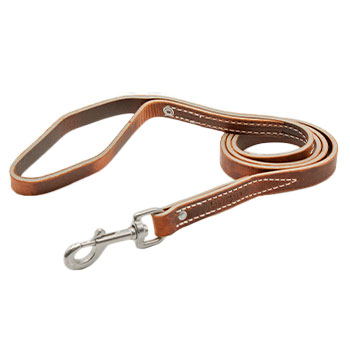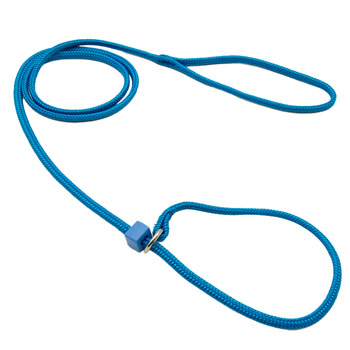May 20, 2011
My dog has always had separation anxiety issues but on video camera he seems to get over it after about 20 mins. Will crate training work for him?
Full Question:
I have checked the forums and and the FAQ. I believe I know part of what you will say but I have questions regarding the nuances (if there are any). My 2 yr old cairn mix, who I have had for 2 months, has always had separation anxiety issues but on video camera he seems to get over it after about 20 mins... so I didn't care too much. Every once in a while he will go into the bathroom trash. Just recently I found out he urinated in one of the bedrooms. From reading the FAQ I believe you said the reason for this is anxiety, nervousness, etc. So I thought that formal crate training would be necessary. My dog isn't afraid of his crate, he sleeps in there all night and when I take him places he's fine being in there. But when I put him in there and leave, he goes nuts. I taped him going wild for 13 minutes while we were at the market.With crate training, is this a scenario where we lock him in there cold turkey until he stops? I suspect this could be hours. He stops the instant anyone returns to his visibility. Is this something that should be incrementally done? a few minutes and build up? is this something I only have to do once? or a few times? does food or distractions come into play at all? and again, how is this any different than me leaving the house for a few hours and returning? clearly after 2 months he hasn't gotten it in his head that we will return to the house. Or perhaps my own perceptions are flawed here.
This morning as I left for work, I decided to leave him in the bedroom with my girlfriend still sleeping. When I got to work I found out he threw a similar tantrum. I don't know the specifics of how my girlfriend handled him but he stopped barking after he was left out.
Now, my dog doesn't have the same level of respect (IMO) for my girlfriend as he does me. I'm the one who walks him, feeds him, and disciplines him. The scenario doesn't work in reverse... if my girlfriend leaves and I stay. Would this be a good exercise where we practice me leaving and having my girlfriend correct him when he starts to whine and/or bark? and a bigger question, should you correct a dog for being in an anxious state?
Thank you in advance.
-Ben

 Cindy's Answer:
Cindy's Answer:
2 months isn’t very long to clear separation anxiety. Actually, it is many times a lifelong management issue that may be something you are always dealing with on some level. I know this because I own a dog with SA.
I’d use a bark collar and a crate. It’s not about the dog knowing you will return, it’s about the anxiety he feels when left alone. Building up the time you are gone is a good idea but if the dog is ever let out of the crate or room he is confined in while he is still feeling anxious, it will actually reinforce the feelings of anxiety he feels. This is why he goes wild in the crate when you are gone. It’s not the crate that he’s worried about, he’s anxious about being left alone. The problem is that if you don’t deal with this it will escalate, it’s not uncommon for dogs to chew through doors, drywall or hurt themselves in a crate trying to escape.
You will need to give this dog consistent handling to get him through it and it may be a project that gets easier but it may never really be cured completely.
I’d start with our Groundwork program and the video that picks up where the article leaves off; Pack Structure for the Family Pet. Dogs with SA need super beefed up structure in their daily lives. lots of exercise will help, because dogs that are tired have less pent up energy to exert into freaking out about being confined.
I’d also suggest you read this article on Dogs who Break out of Dog Crates.
I would direct you to the search function in the upper left corner of the website for any additional questions you may have.. If you type in your key words it will guide you to articles, Q & A’s and posts on our forum.
This is really common with dogs that are from shelters or adopted beyond the puppy stage.
Cindy
I’d use a bark collar and a crate. It’s not about the dog knowing you will return, it’s about the anxiety he feels when left alone. Building up the time you are gone is a good idea but if the dog is ever let out of the crate or room he is confined in while he is still feeling anxious, it will actually reinforce the feelings of anxiety he feels. This is why he goes wild in the crate when you are gone. It’s not the crate that he’s worried about, he’s anxious about being left alone. The problem is that if you don’t deal with this it will escalate, it’s not uncommon for dogs to chew through doors, drywall or hurt themselves in a crate trying to escape.
You will need to give this dog consistent handling to get him through it and it may be a project that gets easier but it may never really be cured completely.
I’d start with our Groundwork program and the video that picks up where the article leaves off; Pack Structure for the Family Pet. Dogs with SA need super beefed up structure in their daily lives. lots of exercise will help, because dogs that are tired have less pent up energy to exert into freaking out about being confined.
I’d also suggest you read this article on Dogs who Break out of Dog Crates.
I would direct you to the search function in the upper left corner of the website for any additional questions you may have.. If you type in your key words it will guide you to articles, Q & A’s and posts on our forum.
This is really common with dogs that are from shelters or adopted beyond the puppy stage.
Cindy
94% (16 out of 17)
respondents found this answer helpful


Can't find what you're looking for?








